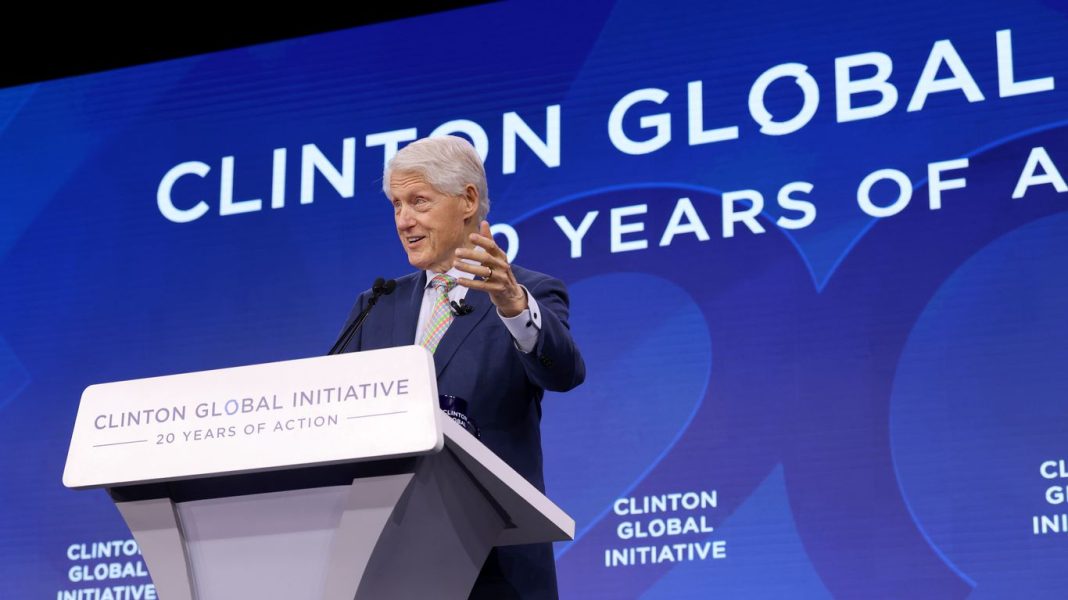In the whirlwind of political discourse, some stories refuse to fade, instead simmering beneath the surface until a new spark ignites them. The latest such ignition comes from former President Trump, who has publicly stated his intent to have the Justice Department delve into the complex, murky waters surrounding the late Jeffrey Epstein and his ties to former President Bill Clinton. This isn’t just another news cycle; it’s a direct challenge to a long-standing web of unanswered questions, promising to stir a potent mix of public curiosity, skepticism, and a renewed clamor for accountability.
The Lingering Shadows of an Unanswered Case
For years, the name Jeffrey Epstein has conjured images of power, privilege, and profound mystery. His sudden death in a federal prison cell, deemed a suicide, only deepened the public’s unease, fueling widespread speculation and a sense that many critical questions about his vast network of high-profile associates remained deliberately unasked, let alone answered. Among those prominent connections, the relationship between Epstein and Bill Clinton has always stood out, drawing particular scrutiny due to its high-profile nature and the apparent frequency of their interactions.
The public’s desire for genuine closure on the Epstein affair is palpable. Many feel that the full scope of his activities, and the extent to which powerful individuals may have facilitated or ignored them, has never truly been revealed. Trump’s latest threat taps directly into this deep-seated frustration, promising an investigation that could, theoretically, pull back the curtain on aspects of the Epstein-Clinton relationship that have long been shrouded in conjecture. It’s a move that seeks to capitalize on a pervasive feeling that the powerful are often shielded from true scrutiny, and that some truths are too inconvenient to be fully exposed.
Political Gambit or Pursuit of Truth?
The announcement immediately raises critical questions about intent. Is this a genuine push to uncover truths that have eluded previous inquiries, or is it a strategically calculated political maneuver designed to put a powerful political rival on the defensive? The intersection of justice and politics is often a fraught one, and the public is acutely aware of how investigations can be weaponized or dismissed based on partisan lines.
On one hand, proponents argue that any new light shed on the Epstein network, regardless of who initiates the investigation, is a step towards justice for his many victims and a testament to the idea that no one is above the law. The hope is that a renewed focus could finally bring forth new evidence or testimony that has previously been suppressed. On the other, critics view such a threat as a transparent attempt to muddy the waters ahead of future political contests, leveraging public fascination with the Epstein scandal for partisan gain. This duality of interpretation leaves the public in a complex position, balancing a desire for truth with a healthy dose of cynicism regarding political motives.
“For too long, the Epstein saga has felt like a loose end in our collective consciousness,” observed local community advocate, Maria Sanchez. “Whether it’s genuine or not, the idea of finally getting real answers about who knew what, and who enabled whom, is something many people want to see. Justice, after all, isn’t just for the headlines.”
The Path Ahead
Trump’s declaration sets the stage for what could be a politically charged and intensely scrutinized period. Should the Justice Department indeed pursue such an investigation, it would not only reignite the debate around Epstein’s crimes and connections but also intensify the scrutiny on the independence and impartiality of the legal system itself. The stakes are immense, not just for the individuals involved, but for the public’s faith in the pursuit of justice and the principle of accountability, regardless of influence or political standing. As this saga unfolds, the demand for transparency and genuine answers will undoubtedly grow louder, testing the boundaries of political will and legal inquiry.




